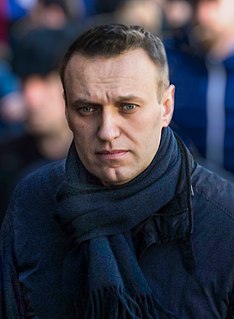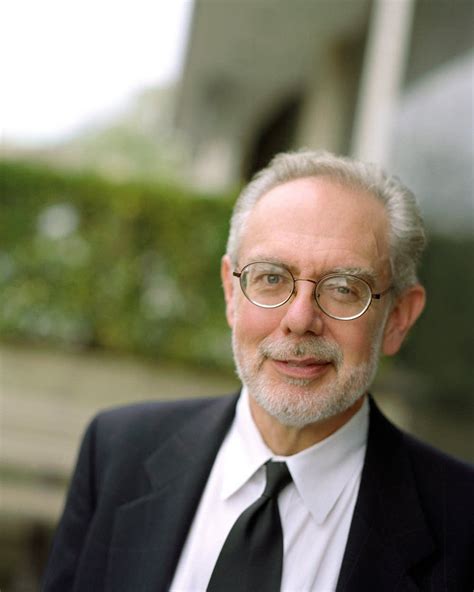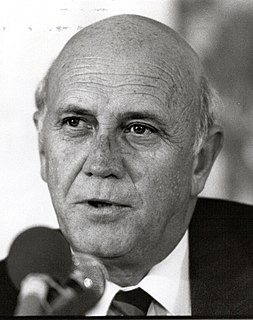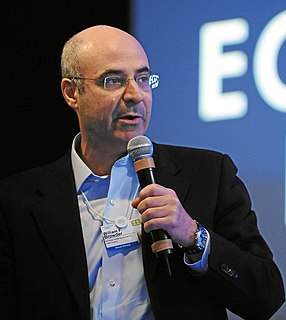A Quote by Alexei Navalny
We should fulfill the Minsk Protocol. The main reason for the sanctions is that Russia broke a taboo: It triggered a war in Europe. Crimea is a problem, but the most painful part of the sanctions is tied to the war in the Donbas. As soon as Russia takes real steps to prevent shots from being fired there, this part of the sanctions will be lifted.
Related Quotes
That`s how you end up with a guy like Dan Fried, overseeing the U.S. sanctions against Russia for Russia did in Ukraine and Crimea.Russia hates those sanctions more than they love life. They hate those sanctions. So, of course, you need your toughest and most experienced guy running those sanctions.
US opposition to Russia and China has entailed sanctions against Russia, and Russia in turn has made counter-sanctions against Europe. So Europe is essentially sacrificing its opportunities for trade and investment in order to remain part of NATO. It is also agreeing to bomb Syria and the Near East, creating a wave of refugees that it doesn't know what to do with.
Some French politicians have said that the European Union should drop sanctions against Russia so everybody can join together in this fight against the Islamic State. But we're hearing from French officials that [Francois] Hollande hasn't changed his stance. He's - he's still saying that sanctions shouldn't be lifted until the Minsk agreement has been implemented.
So, I think that for the authorities to say now that calling for sanctions will prevent dialogue is a ploy to stop us from supporting sanctions. It has to be the other way around: dialogue first, then we stop our call for sanctions, because sanctions make people understand that you cannot exercise repression and at the same time expect international support.
If Donald Trump dismantles the agreement [the "Iran nuclear deal"] won by President Barack Obama with President Hassan Rouhani and the Iranian government and people: If he dismantles that, and puts greater sanctions on Iran, then we are leading to another war; another war inspired by Israel, another war that will bring China into war, Russia into war, Europe into war. And the Western world, in this war, will be taken completely down, and a whole new world is on the horizon.
I think, of the kind of erratic behavior that many of us feared once Trump came into office. And I think you're seeing evidence of that, even though, you know, some of the worst-case scenarios that we imagined have not yet, mercifully, come to pass. I mean, for example, he has not destroyed NATO. He has not launched a trade war with China. He has not lifted sanctions on Russia. In all those cases, in part, because his hands had been tied. And of course, it's only a year in, so he's still got time to go.
Sanctions kept us on our toes, it made us realize that we were drifting into a situation of growing isolation so I wouldn't go as far as to say sanctions didn't play a role but if I were to put on a scale, the issues of conscience played a much greater role than the sanctions. We could have withstood sanctions for many more years. We became experts in circumventing sanctions... So sanctions played a role but it wasn't the major role.
Israel's discourse with the United States on the subject of Iran's nuclear project is more significant, and more fraught, than it is with Europe. The U.S. has made efforts to stiffen sanctions against Iran and to mobilize countries like Russia and China to apply sanctions in exchange for substantial American concessions.
Putin discovered that when he invaded Ukraine, he expected the Ukrainians to rise up and join him and say, "Yes, we want to be part of Russia," and that didn't happen. And they've been paying, actually, I think quite a high price for it, both in the ongoing war in Ukraine - which is I think increasingly unpopular in Russia - and also in the Western sanctions, and in general, the separation from the West that was caused by that.
At the U.N., I routinely encounter countries that do not want to impose sanctions or even to enforce those already on the books. The hard-line sanctions skeptics have their own self-interested reasons for opposing sanctions, but they ground their opposition in claims that America uses sanctions to inflict punishment for punishment's sake.
People take the lazy way out, and do not regard Putin and the Kremlin as the real enemy. They create a long but erroneous chain in their heads. Putin is the leader of Russia. Putin does X, therefore Russia is doing X, and Russia is our enemy. And so, we introduce sanctions, for example, against Russia.



































